*NURSING > QUESTIONS & ANSWERS > Medical-Surgical Drugs Questions and Answers (All)
Medical-Surgical Drugs Questions and Answers
Document Content and Description Below
Quiz: Medical-Surgical Drugs Correct Answers: 7 3029479603 Confidence: Just a guess Stats Issue with this question? 4. The provider prescribes one unit of packed red blood cells to be administe... red to a client. To ensure the client's safety, which measure should the nurse take during administration of blood products? Correct1 Stay with client during first 15 minutes of infusion. 2 Flush packed red blood cells with 5% dextrose and 0.45% normal saline. 3 Discontinue the intravenous catheter if a blood transfusion reaction occurs. 4 Administer the red blood cells through a percutaneously inserted central catheter line with a 20-gauge needle. The nurse should remain with the client for the first 15 to 30 minutes. Any severe reaction usually occurs with the infusion of the first 50 mL of blood. Blood components are viscous, requiring a large needle to be used for venous access. A 20-gauge needle is not used to access a central catheter line. Normal saline is the solution to administer with blood productions. Lactated Ringer and dextrose in water are not used for infusion because of hemolysis. 75%of students nationwide answered this question correctly. View Topics 3029691363 Confidence: Just a guess Stats Issue with this question? 8.A client who takes daily megadoses of vitamins is hospitalized with joint pain, loss of hair, yellow pigmentation of the skin, and an enlarged liver due to vitamin toxicity. What type of toxicity does the nurse suspect? Correct1 Retinol (vitamin A) 2 Thiamine (vitamin B1) 3 Pyridoxine (vitamin B6) 4 Ascorbic acid (vitamin C) These adaptations, as well as anemia, irritability, pruritus, and an enlarged spleen, occur with vitamin A toxicity. Excess thiamine is excreted in the urine and rarely, if ever, causes toxicity; an excessive dose may elicit an allergic reaction in some individuals. Excess vitamin C (ascorbic acid) does not cause these adaptations or toxicity; however, vitamin C may cause diarrhea or renal calculi. Pyridoxine (vitamin B6) is relatively nontoxic, and excess amounts are excreted in the urine. STUDY TIP: Begin studying by setting goals. Make sure they are realistic. A goal of scoring 100% on all exams is not realistic, but scoring an 85% may be a better goal. 54%of students nationwide answered this question correctly. View Topics 3029538155 Confidence: Just a guess Stats Issue with this question? 10. A client with diabetes asks how exercise will affect insulin and dietary needs. What information does the nurse share about insulin and exercise? Correct1 "Exercise increases the need for carbohydrates and decreases the need for insulin." 2 "Exercise increases the need for insulin and increases the need for carbohydrates."3 "Regular physical activity decreases the need for insulin and decreases the need for carbohydrates." 4 "Intensive physical activity decreases the need for carbohydrates but does not affect the need for insulin." Exercise increases the uptake of glucose by active muscle cells without the need for insulin; carbohydrates are needed to supply energy for the increased metabolic rate associated with exercise. The need for insulin is decreased. Test-Taking Tip: Being emotionally prepared for an examination is key to your success. Proper use of resources over an extended period of time ensures your understanding and increases your confidence about your nursing knowledge. Your lifelong dream of becoming a nurse is now within your reach! You are excited, yet anxious. This feeling is normal. A little anxiety can be good because it increases awareness of reality; but excessive anxiety has the opposite effect, acting as a barrier and keeping you from reaching your goal. Your attitude about yourself and your goals will help keep you focused, adding to your strength and inner conviction to achieve success. 57%of students nationwide answered this question correctly. View Topics 3029539085 Confidence: Just a guess Stats Issue with this question? 12. A client with a new diagnosis of type 1 diabetes is told that lifelong insulin will be needed. The client becomes agitated and says, "I am scared of shots. If that is my only option, I’ll just have to go into a coma and die!" What is the nurse’s best response? Correct1 "Injections are not the only option available for insulin." 2 "It won’t be so bad; you will get used to it if you will only try." 3 "This is one of those times when you need to act like an adult." 4"Clients have the right to refuse treatment, but I need you to sign this form that removes us from liability for your decision." An insulin nasal spray was approved by the Food and Drug Administration (FDA) in 2014 and is available for clients who do not want insulin injections. The nurse should use therapeutic communication in interacting with clients. Intimidating the client by suggesting that actions are childlike and suggesting that the client’s concerns are not significant are not therapeutic responses. The nurse’s primary concern should be for the client’s well-being, not protection from liability. Test-Taking Tip: If you are unable to answer a multiple-choice question immediately, eliminate the alternatives that you know are incorrect and proceed from that point. The same goes for a multipleresponse question that requires you to choose two or more of the given alternatives. If a fill-in-the-blank question poses a problem, read the situation and essential information carefully and then formulate your response. 66%of students nationwide answered this question correctly. View Topics 3142279413 Confidence: Just a guess Stats Issue with this question? 14. A client who is receiving phenytoin to control a seizure disorder questions the nurse regarding this medication after discharge. How will the nurse respond? Correct1 "Antiseizure drugs will probably be continued for life." 2 "Phenytoin prevents any further occurrence of seizures." 3 "This drug needs to be taken during periods of emotional stress." 4 "Your antiseizure drug usually can be stopped after a year's absence of seizures." Seizure disorders usually are associated with marked changes in the electrical activity of the cerebral cortex, requiring prolonged or lifelong therapy. Seizures may occur despite drug therapy; the dosage may need to be adjusted. A therapeutic blood level must be maintained through consistent administration ofthe drug irrespective of emotional stress. Absence of seizures will probably result from medication effectiveness rather than from correction of the pathophysiologic condition. 53%of students nationwide answered this question correctly. View Topics 3029486363 Confidence: Just a guess Stats Issue with this question? 17. A client develops thrombophlebitis in the right calf. Bed rest is prescribed, and an IV of heparin is initiated. What drug action will the nurse include when describing the purpose of this drug to the client? Correct1 Prevents extension of the clot 2 Reduces the size of the thrombus 3 Dissolves the blood clot in the vein 4 Facilitates absorption of red blood cells Heparin interferes with activation of prothrombin to thrombin and inhibits aggregation of platelets. Heparin does not reduce the size of a thrombus. Heparin does not dissolve blood clots in the veins. Heparin does not facilitate the absorption of red blood cells. 60%of students nationwide answered this question correctly. View Topics 3142284896 Confidence: Just a guess Stats Issue with this question? 23.A client reports nausea, vomiting, and seeing a yellow light around objects. A diagnosis of hypokalemia is made. Upon a review of the client's prescribed medication list, the nurse determines that what is the likely cause of the clinical findings? Correct1 Digoxin (Lanoxin) 2 Furosemide (Lasix) 3 Propranolol (Inderal) 4 Spironolactone (Aldactone) These are signs of digitalis toxicity, which is more likely to occur in the presence of hypokalemia. Although furosemide most likely contributed to the hypokalemia, the client's symptoms are consistent with digitalis toxicity. Although propranolol can cause nausea, vomiting, and blurred vision, the presence of hypokalemia and yellow vision are more suggestive of digitalis toxicity. A side effect of spironolactone is hyperkalemia, not hypokalemia [Show More]
Last updated: 1 year ago
Preview 1 out of 90 pages
.png)
Reviews( 0 )
Document information
Connected school, study & course
About the document
Uploaded On
Sep 12, 2021
Number of pages
90
Written in
Additional information
This document has been written for:
Uploaded
Sep 12, 2021
Downloads
0
Views
102

.png)
.png)
.png)
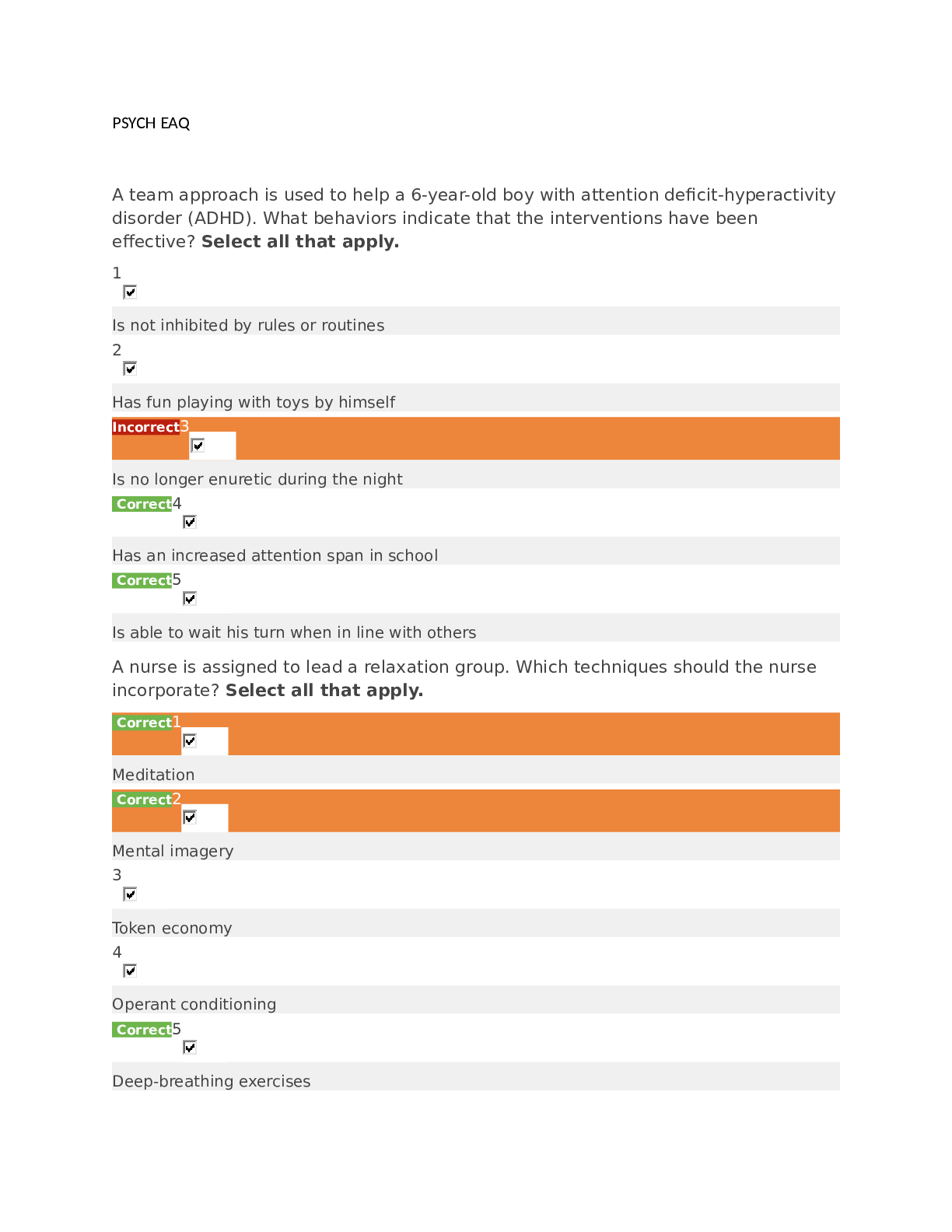
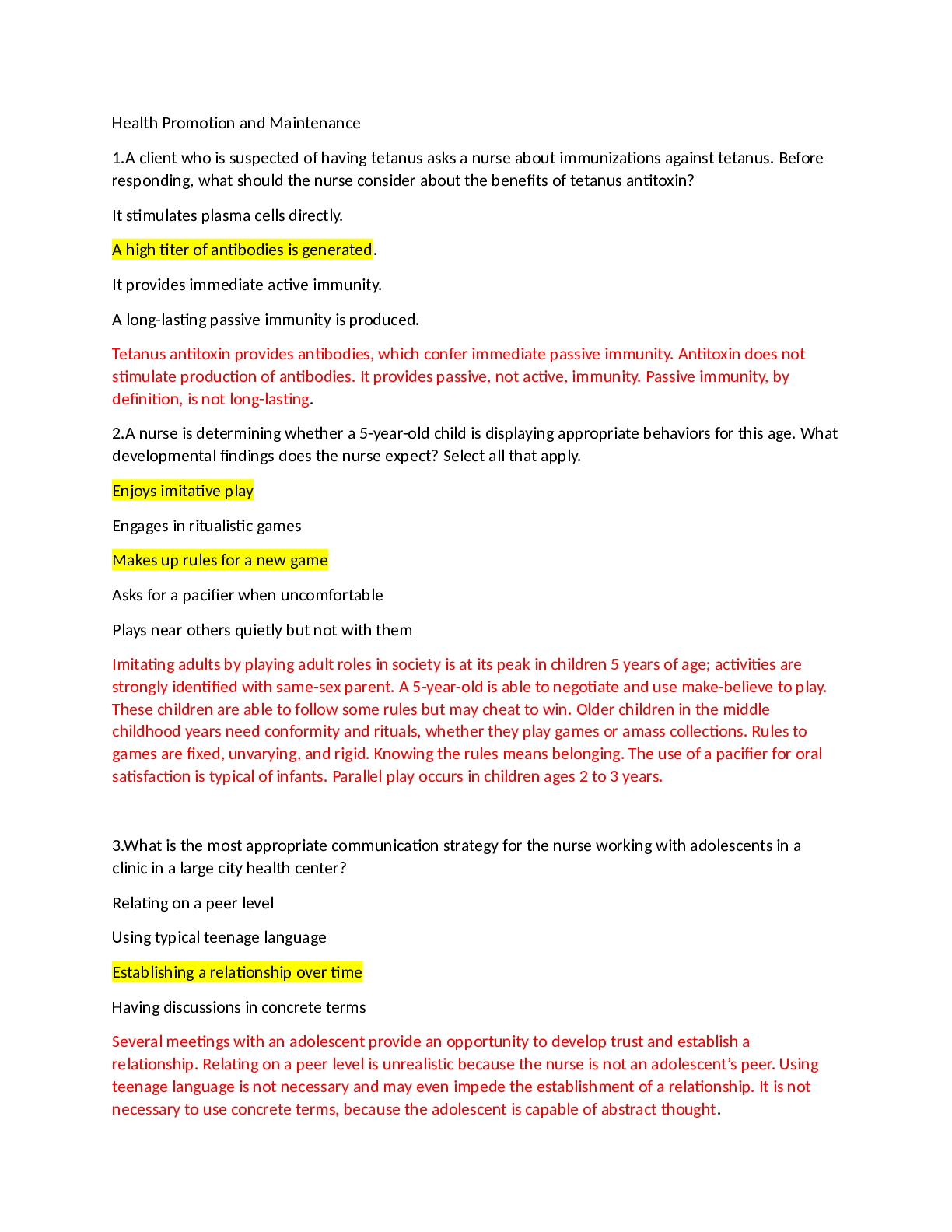
.png)
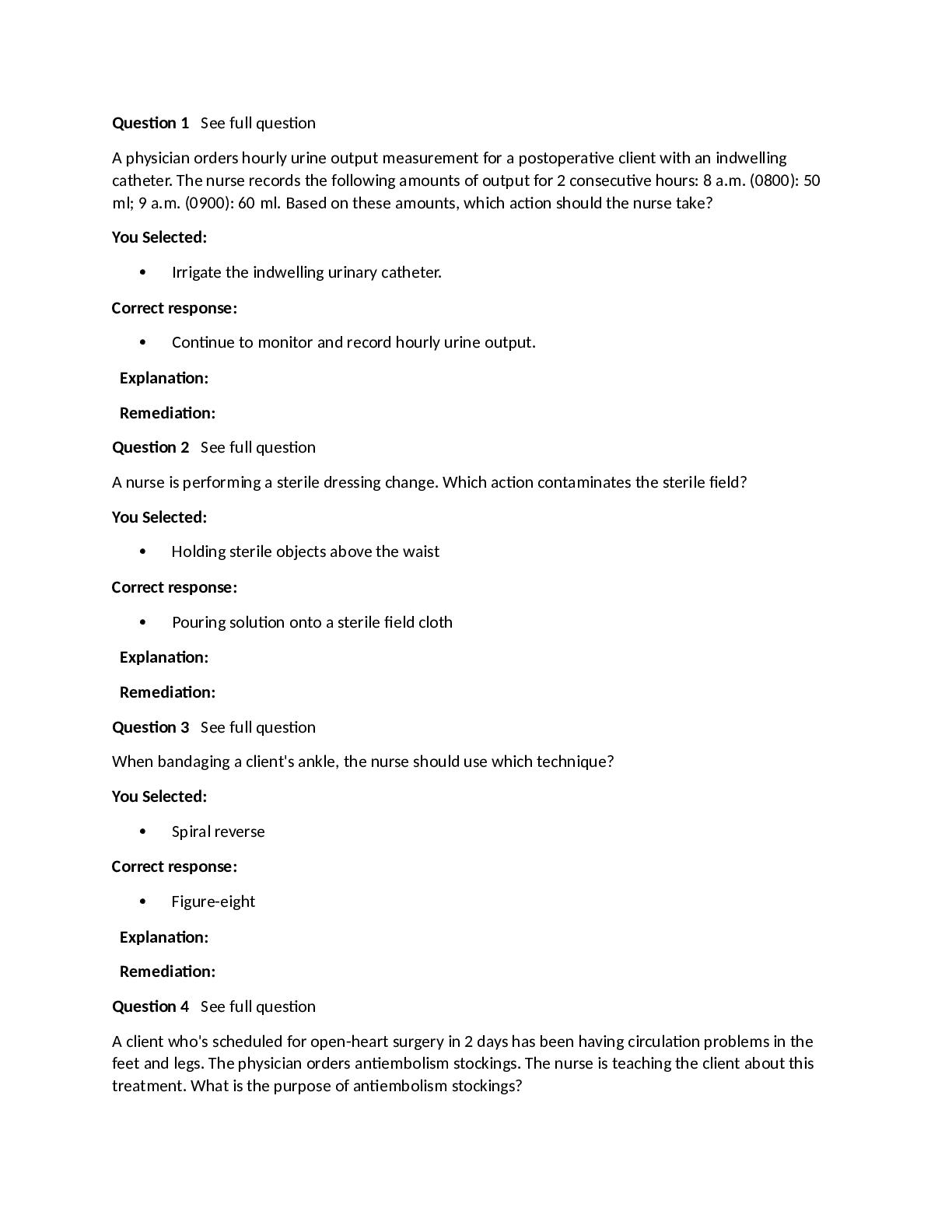
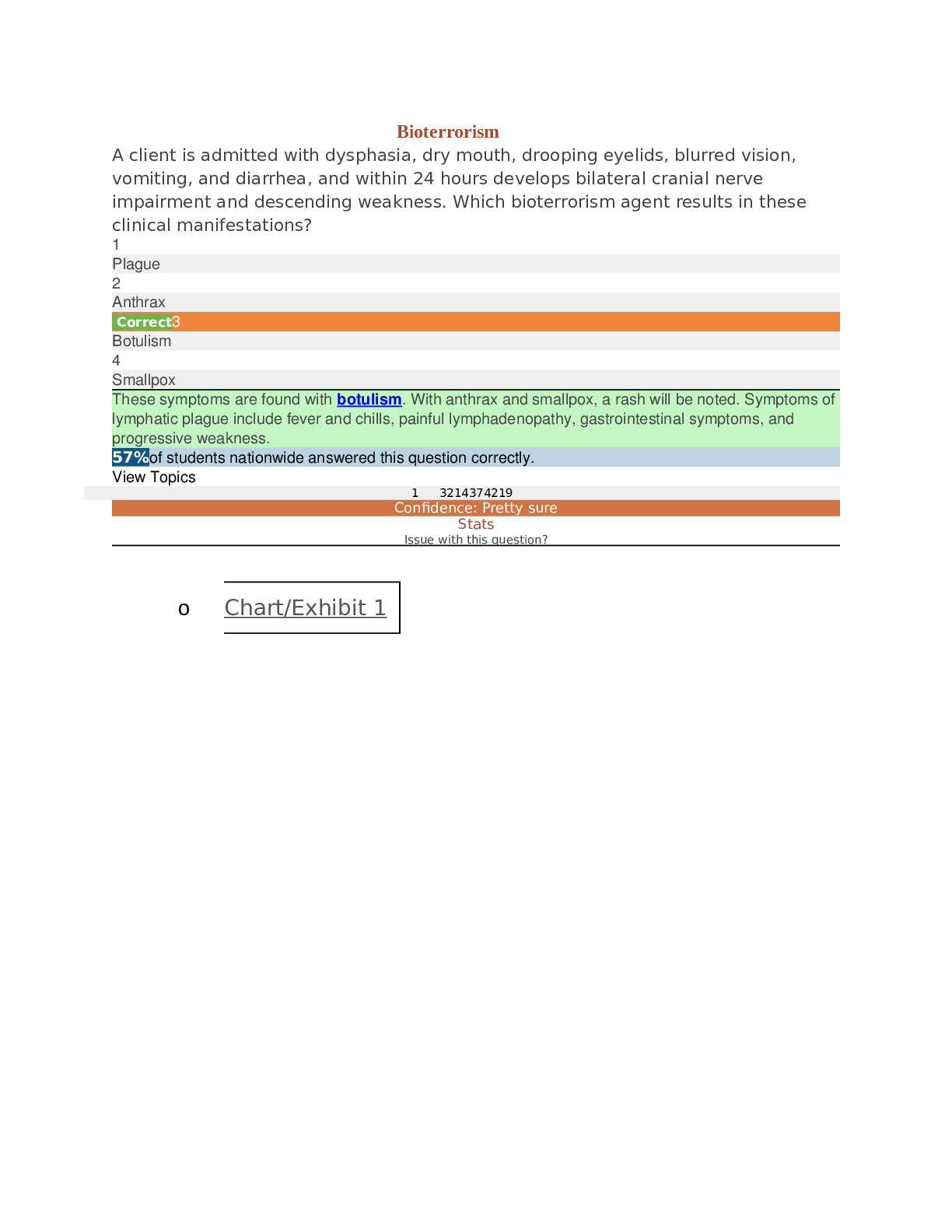
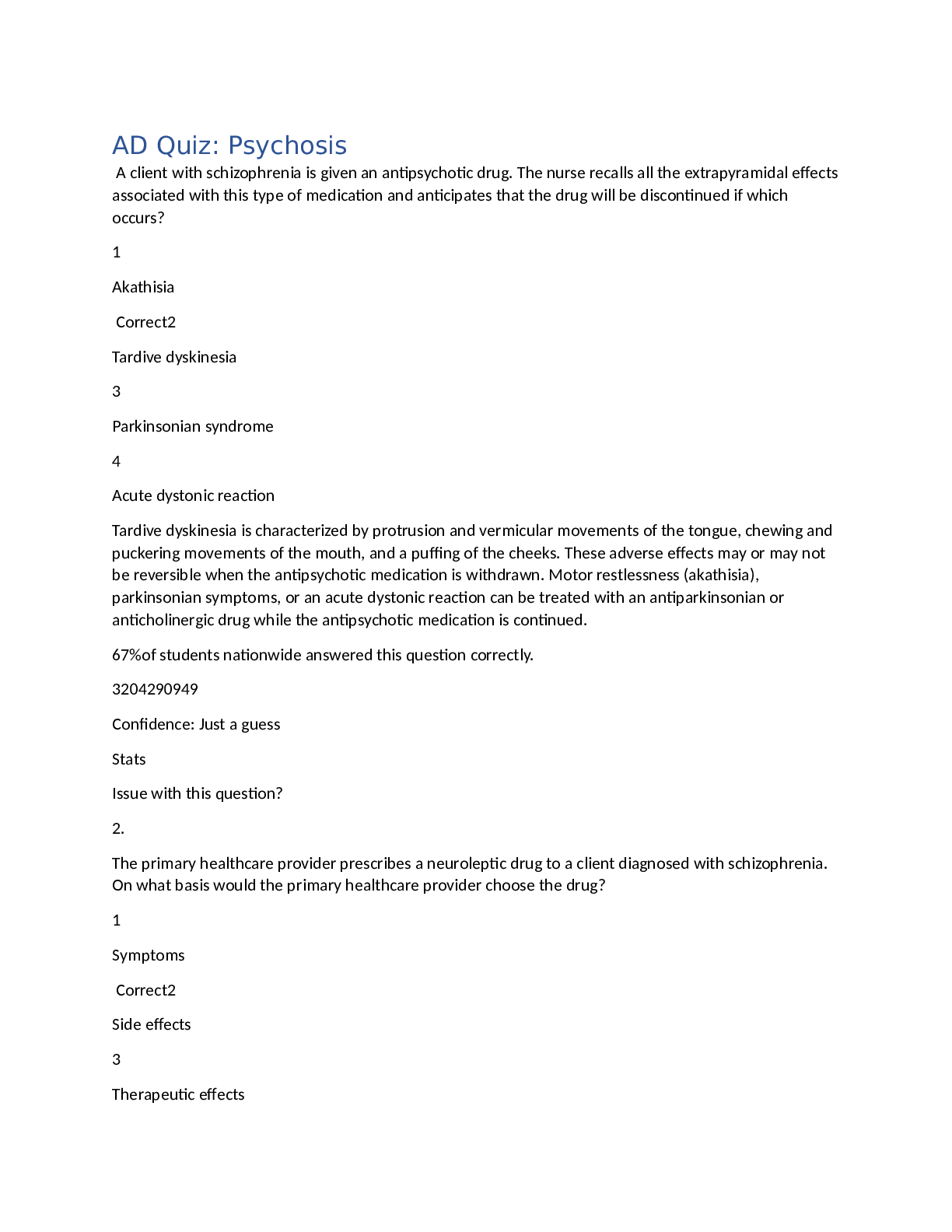

.png)
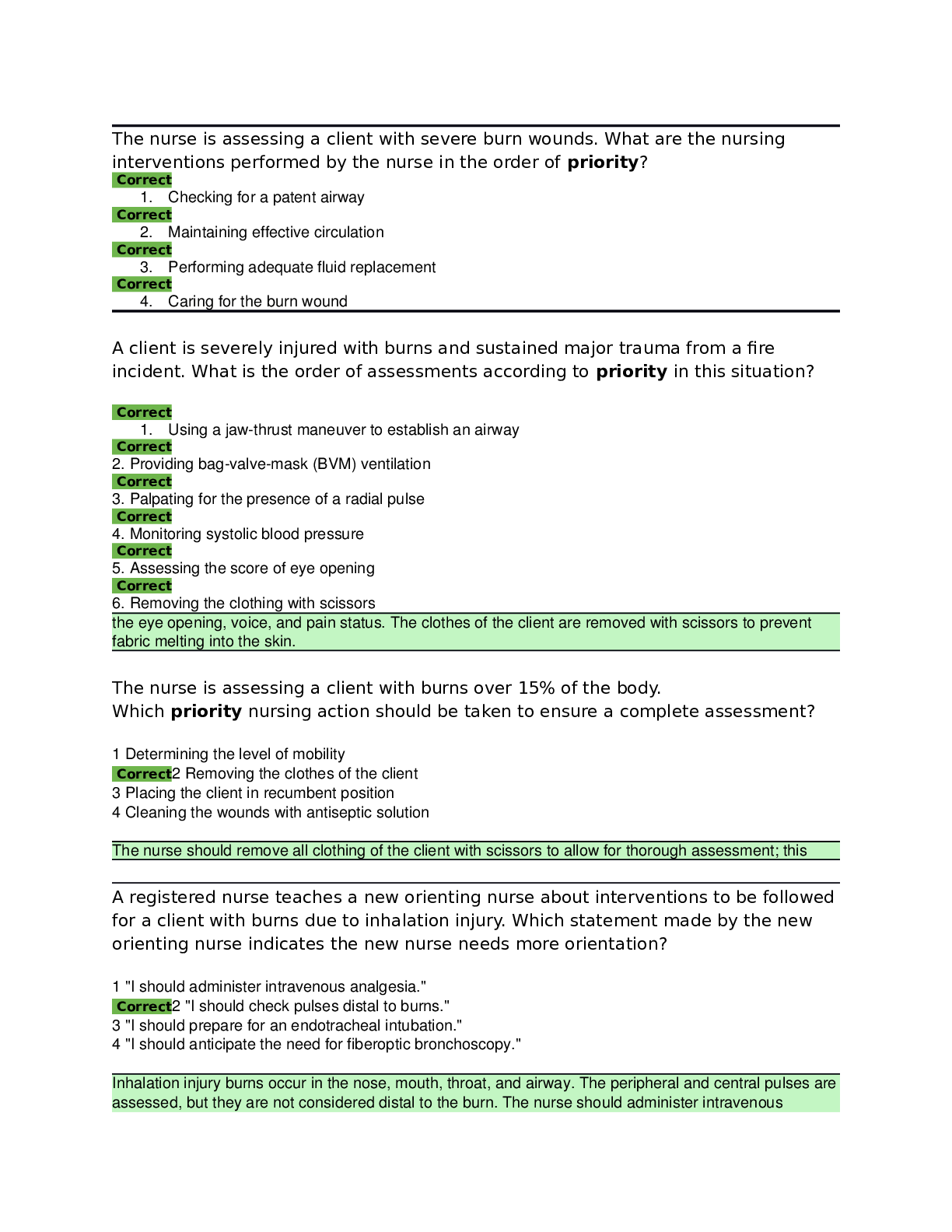
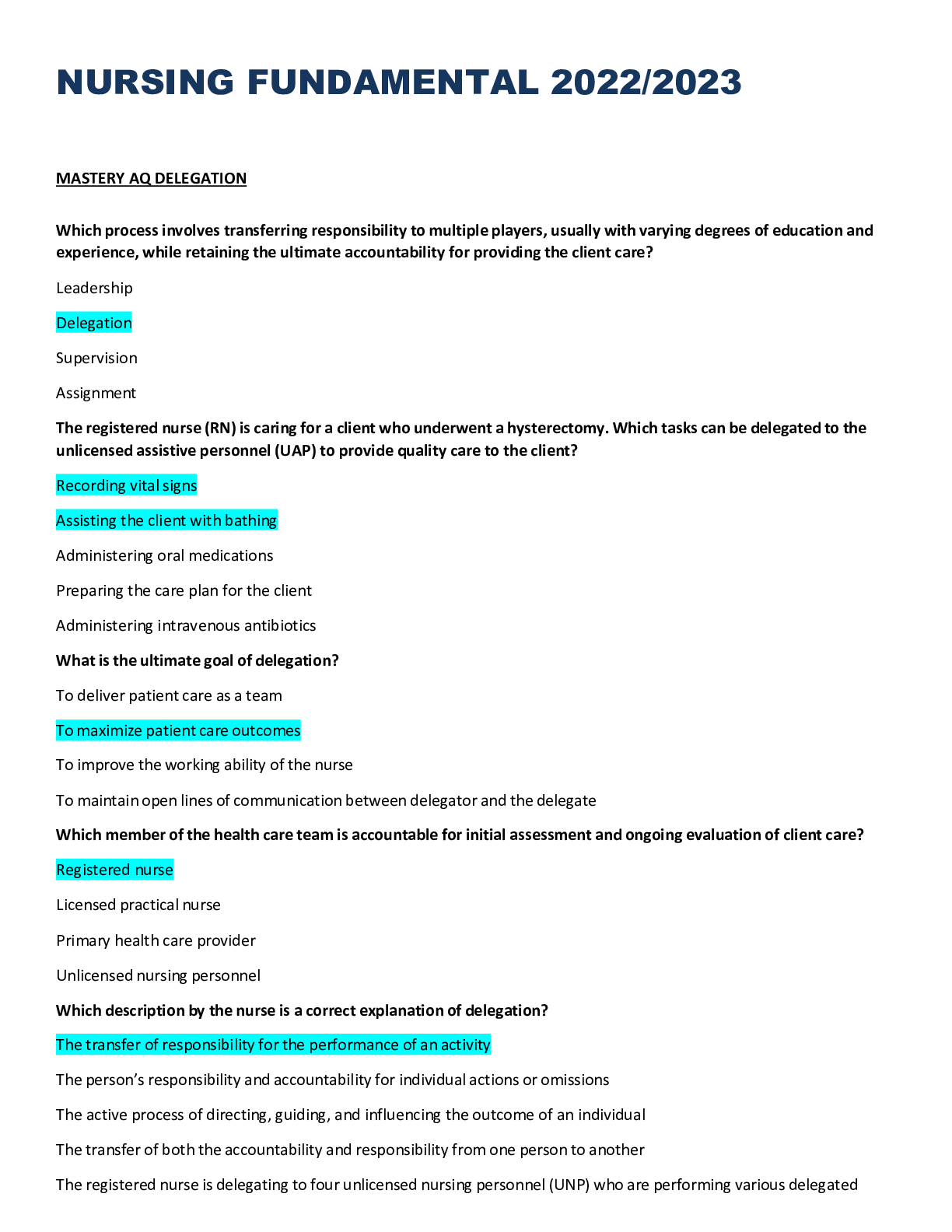
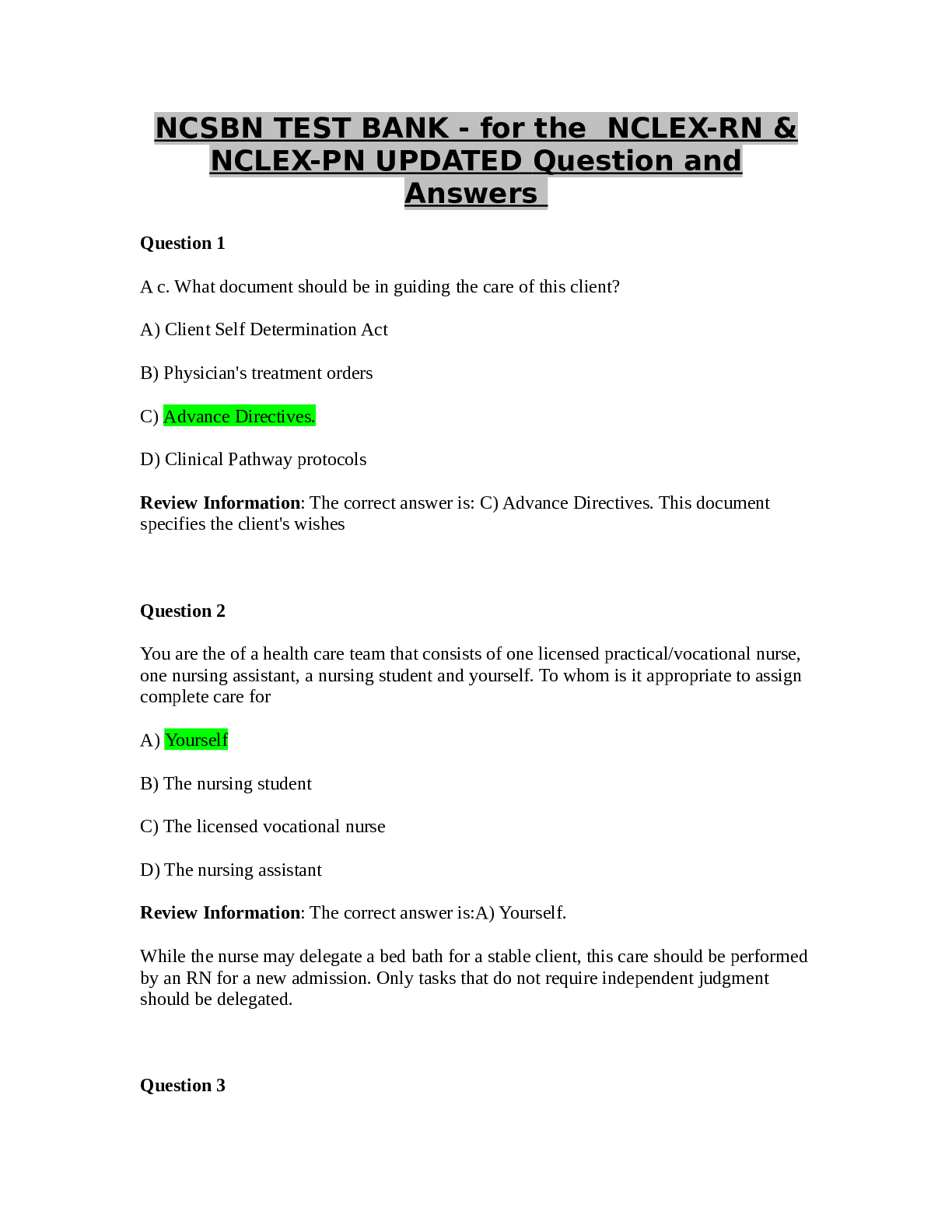
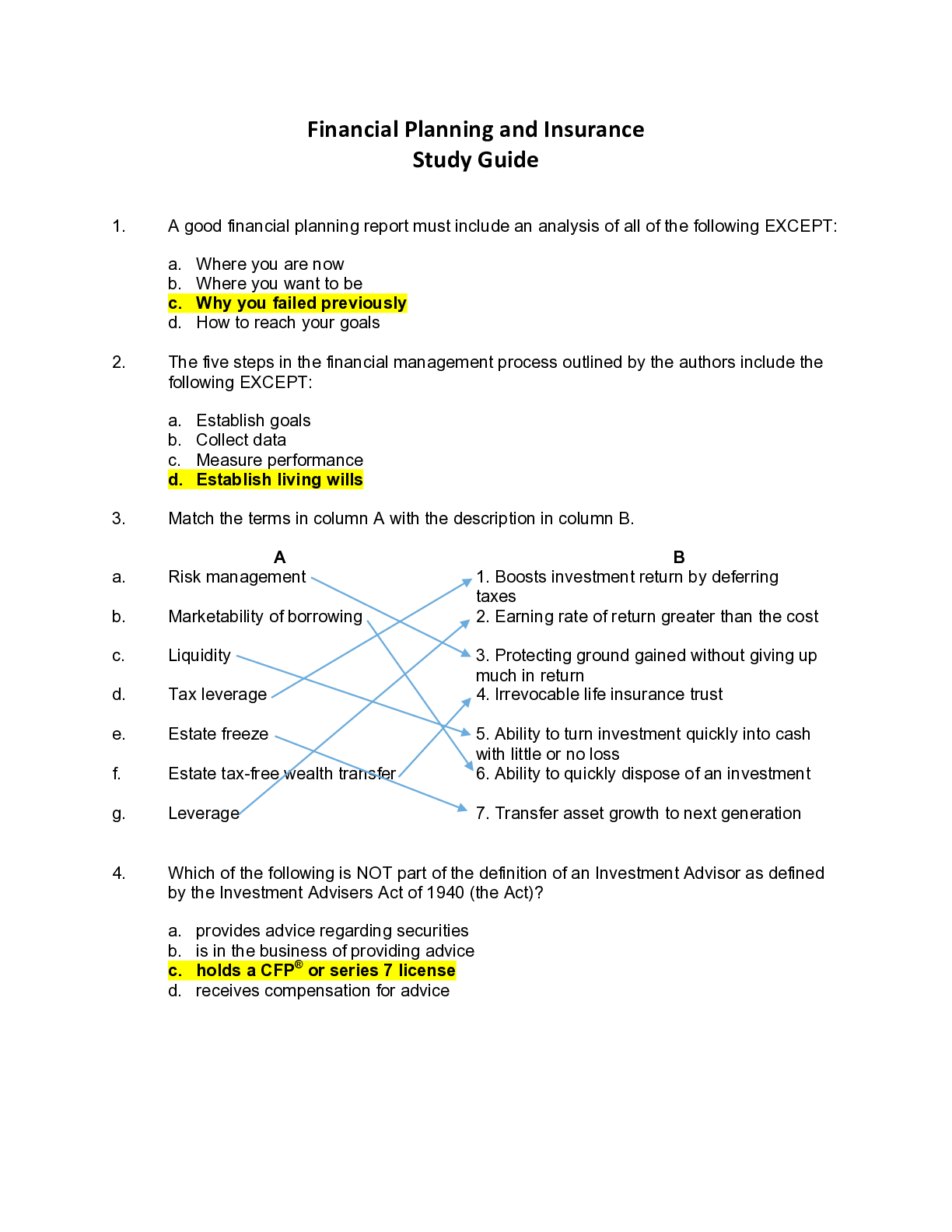
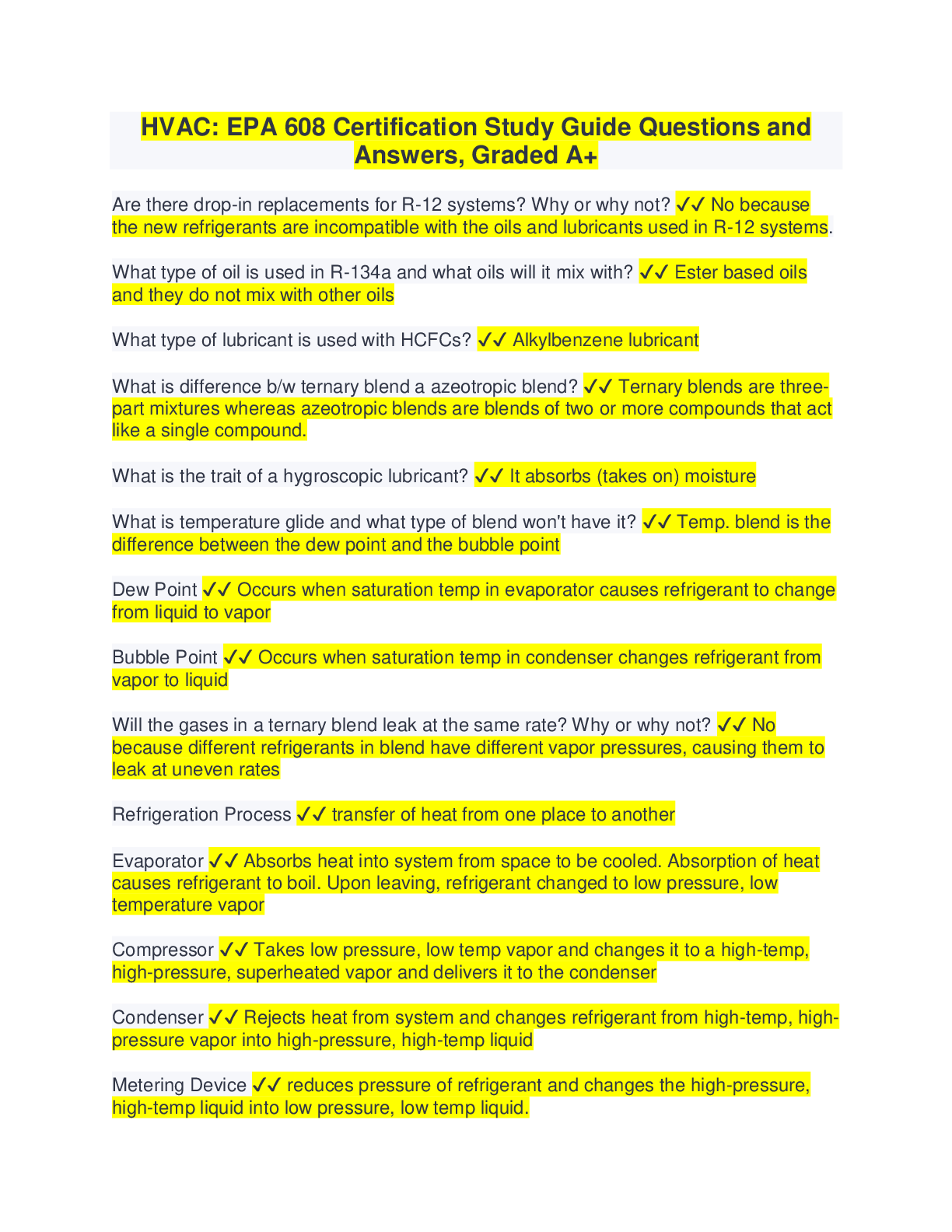
.png)
.png)
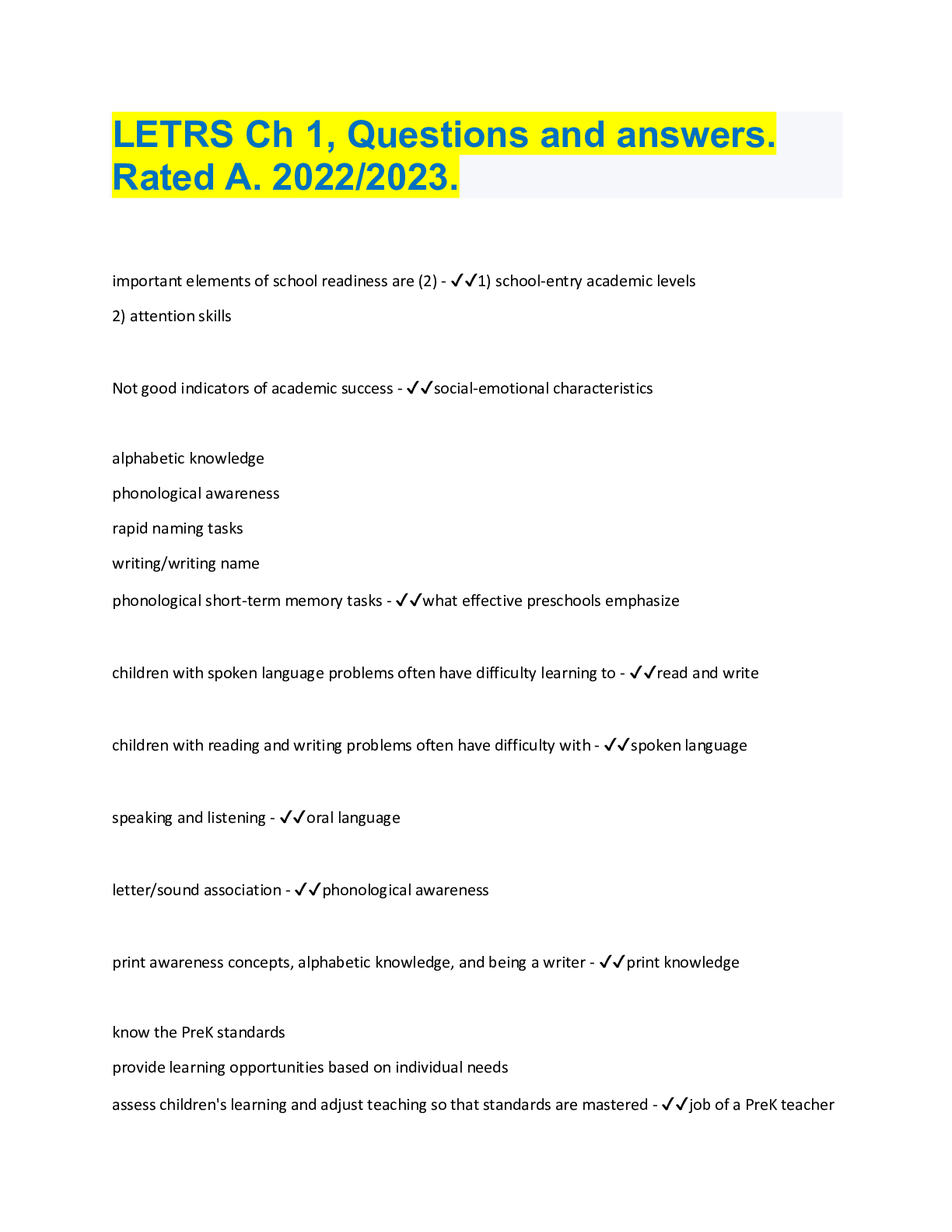
.png)
.png)

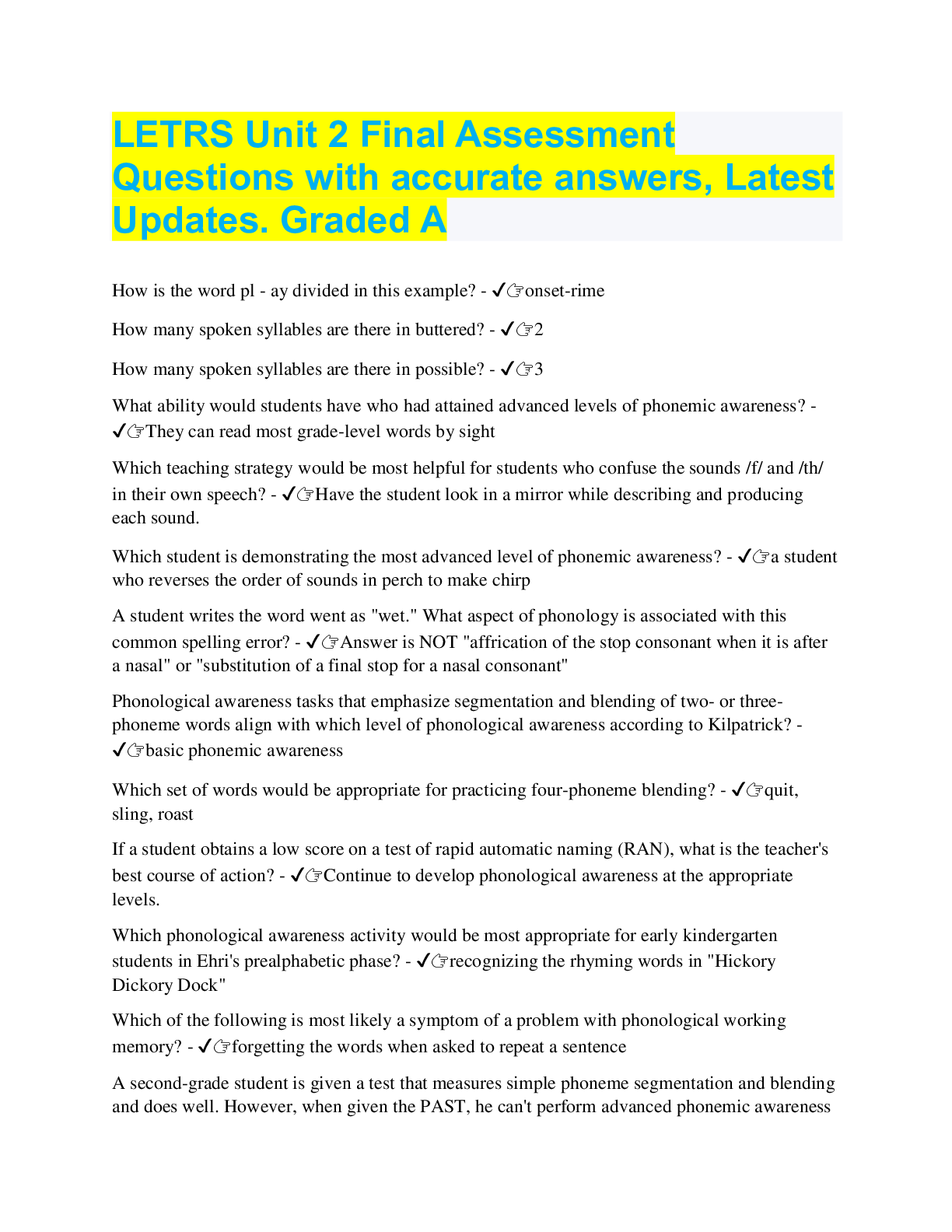
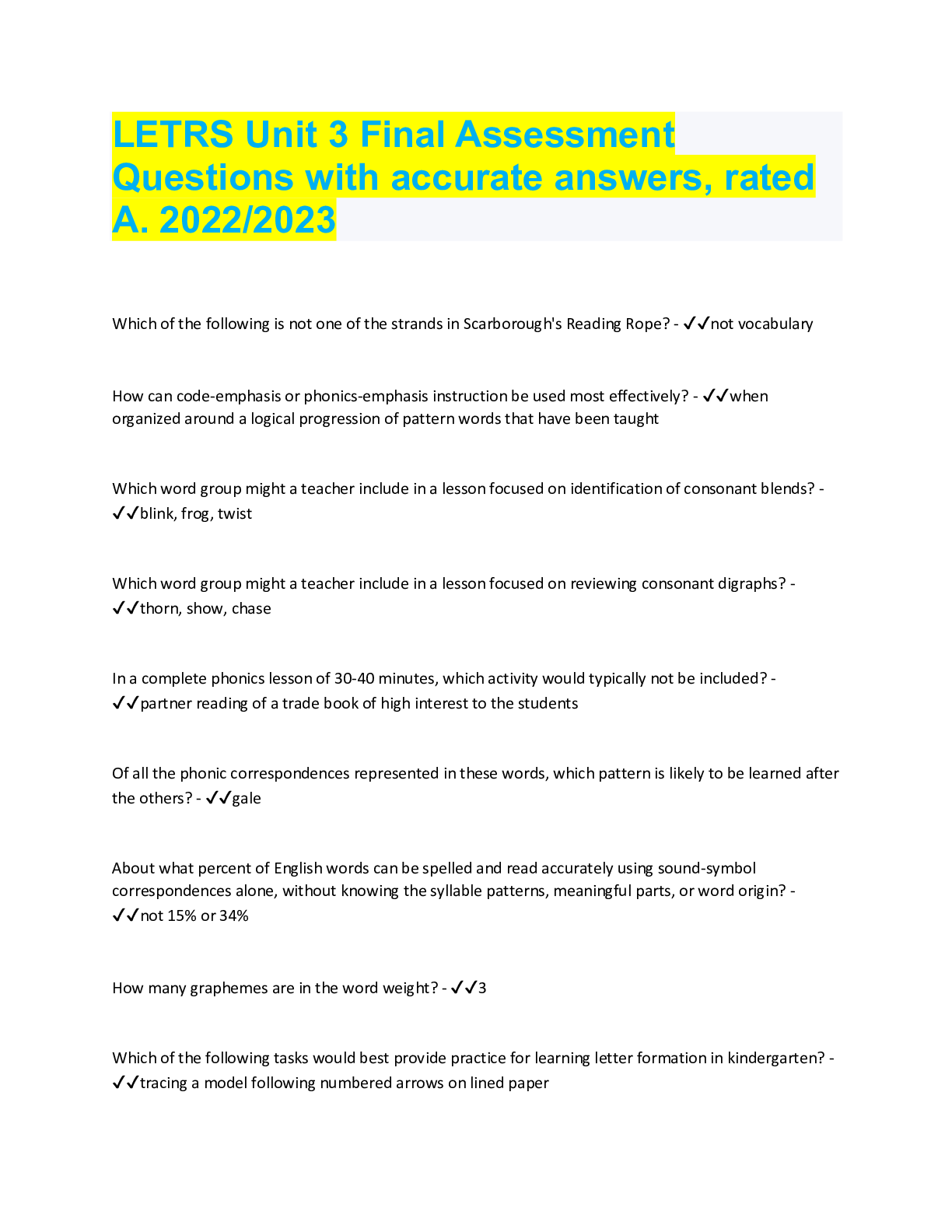
.png)
.png)
.png)
.png)
.png)
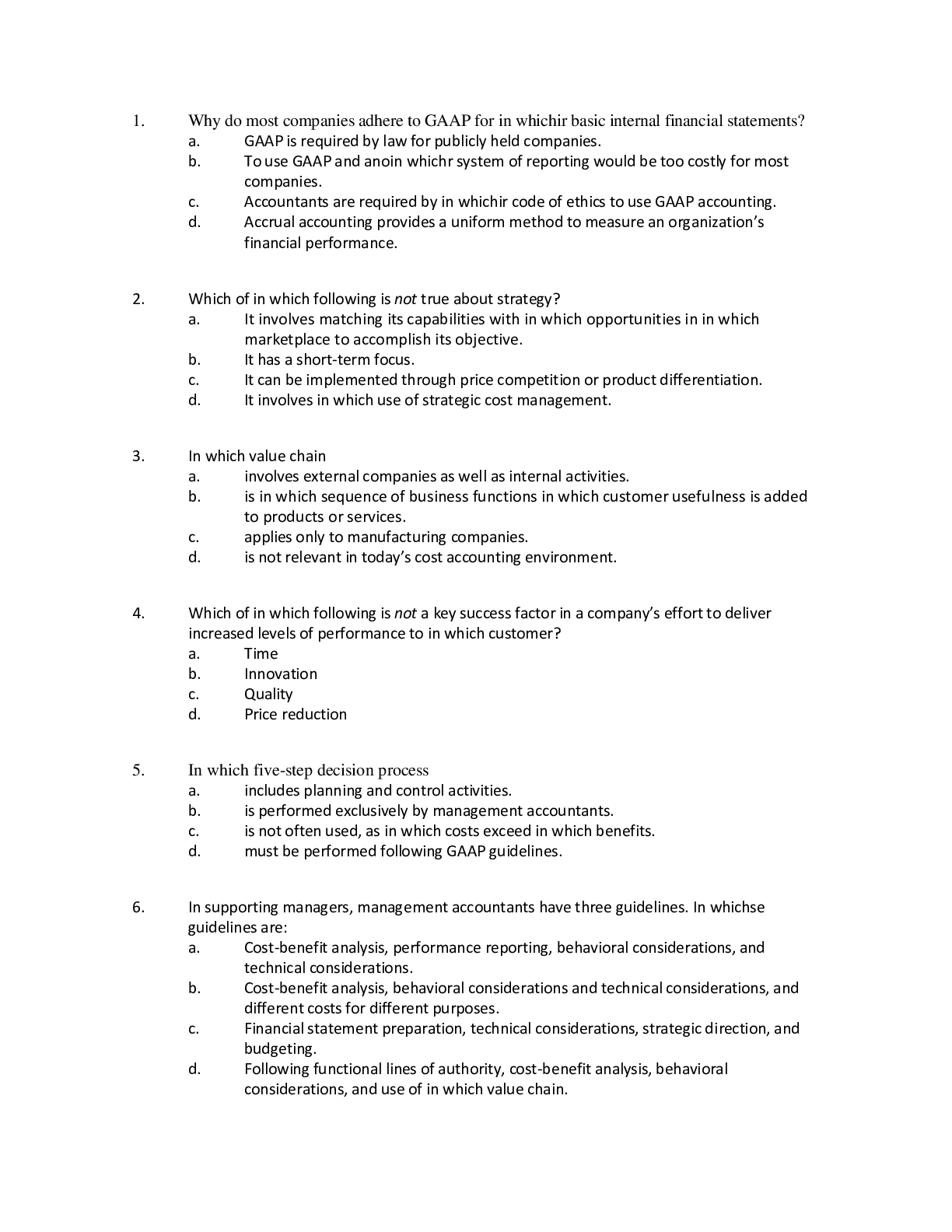
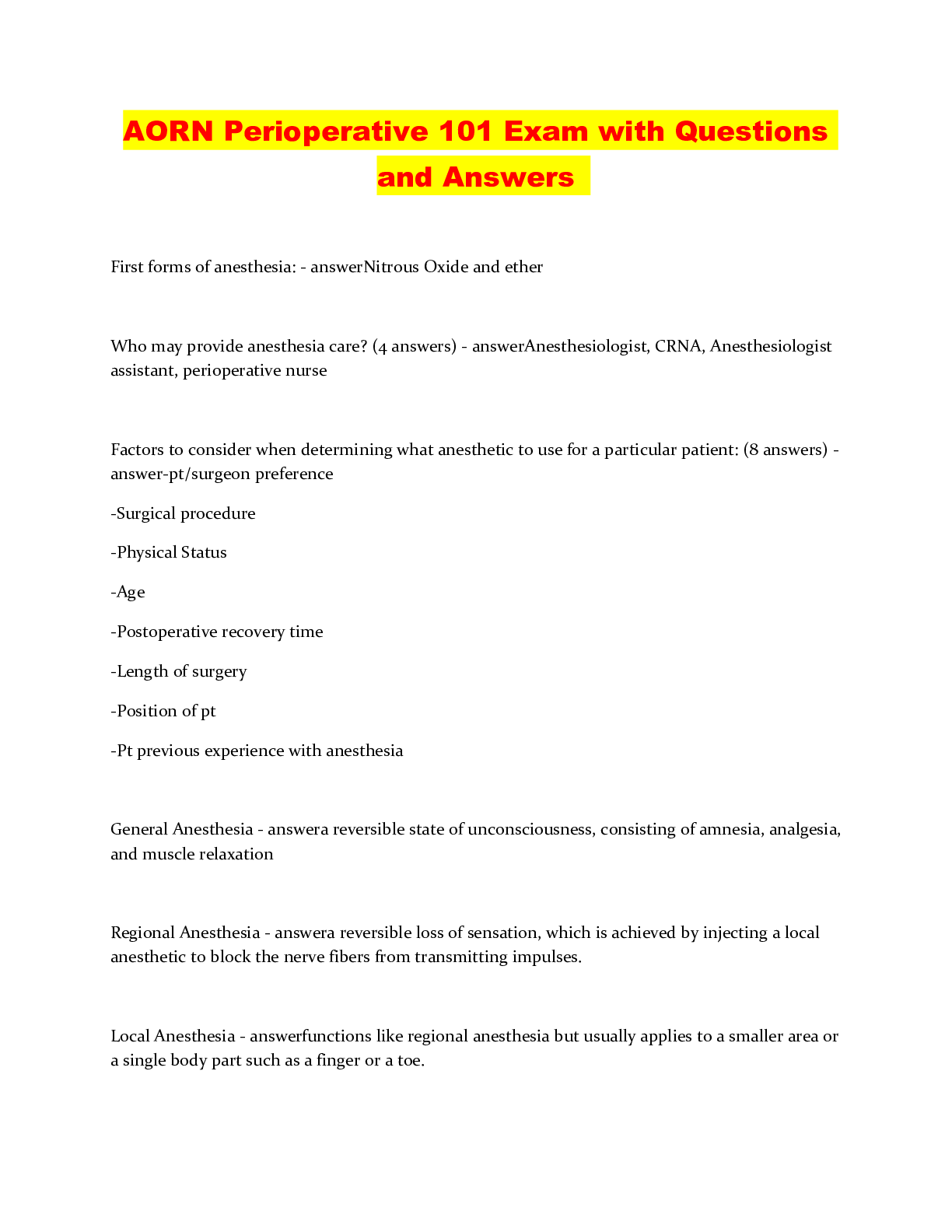


.png)
.png)

